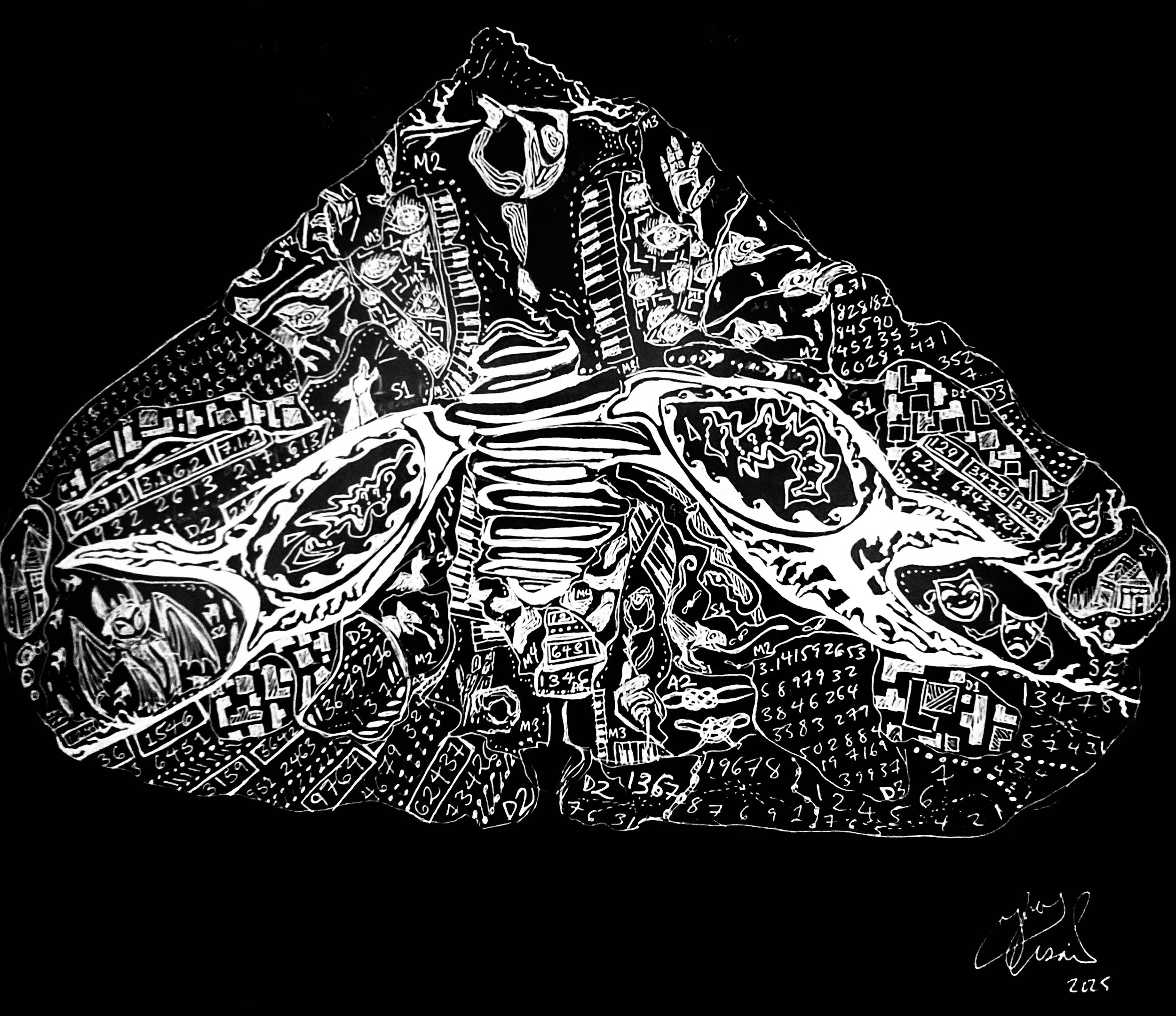The Cerebellum
(The cerebellum brain region, segmented into images representing functions in each area. *artwork by Incé Husain)
What is the PhD, the brain research, the neuroscience life, my only true claim to London?
I talk about it for ~20min on GradCast, Western’s radio channel. I study how a mysterious little brain circuit accomplishes movement and cognitive function (memory, language, learning, social processing, etc..), with an overarching interest in how cognitive brain activity might change as it traverses different brain regions in the circuit. I also talked about journalism, genocide, scholasticide, and the world order in the context of its relevance to the scientific research community. Huge thank you to the GradCast hosts for featuring me so warmly, dynamically, and holding space for me to share all that’s on my mind. Listen to the podcast here if curious! :
https://gradcastradio.podbean.com/e/511-mapping-it-out-the-cerebellum-in-action/
I came to neuroscience because I saw it as the study of humanity. I thought it would fulfil me the same way that writing and art does - the quest to grasp the essence of who we are. What is the root of this thought, this feeling? What are the mechanisms that make me, in joy and in derailment?
I was interested in psychiatry, in perceptions of life that are socially exiled as pathological, dismissed or justified as chemical, that cause war with the self. I was interested in hallucination, delusion, dissociation, mania, paranoia, psychopathy, narcissism, emotional volatility, individualized suffering and documentation of suffering. I wanted neuroscience to be the language of the lost, that gives such inescapable clarity to human fragility - by concretizing emotional harm in electricity, chemistry, biology - that it would bias humanity towards grace. In the same breath, it would calm my head to bearing violence, unmonster the monstrous in the world by summarizing them in neat biological terminology. The idea of neuroscience became a personal philosophy that would ensure I was gentler, braver, livelier, revolving around alleviating human harm, always. I loved my PhD project because it was a reminder of this in its focus on demystifying human cognition. I thought: I am so lucky to be studying the roots of everything. I wonder what kind of pathology arises from an error in this little circuit. I wonder what kind of art and poetry ensues.
A month into my PhD, genocide began in Gaza. It unfolds everyday before my eyes - on my phone screen, my news notifications, warping everything.
Is my primary pull to neuroscience still a personal life philosophy?
My supervisor told me last week: come back from the conference in Switzerland with an idea about what you want your next three years to be. Find a question you’re passionate about.
I thought immediately: I want to study trauma. I want to study cognitive dissonance. I want to study the limits of human empathy. I want to study narrative - that which allows humans to justify killing innocent people. I want to study resilience.
I’m not sure how yet, but I will.
The tie between neuroscience and journalism is this: I study neuroscience to try to explain why my journalism is about injustice.
In three days, I’ll be cradled by mountains in Switzerland, presenting my research at a village nestled in the Swiss alps. May the mountain air calm me. ♦
